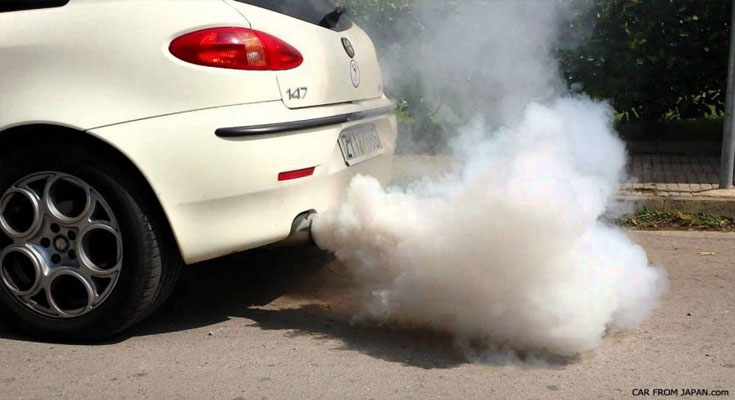When smoke billows out of your vehicle’s tailpipe, it usually means your engine is burning oil. I’m referring to the massive, dark plumes as opposed to the small white wisps attributable to condensation. The problem is that the root bring about from the oil burn can potentially be situated in quite a few areas. It might be due to a failing valve seal, pressurized oil pan, jammed PCV, or deteriorating piston rings.
Below, we’ll take a short look at each of these variables. I’ll explain how they contribute to an oil burn and outcome in smoke coming out of your automobile’s tailpipe.
Your Valve Seals Are Failing
Your engine’s cylinder head is situated directly above the combustion chamber. Many valves are contained within the cylinder head. Beneath standard conditions, every valve includes a seal that prevents oil from dripping into the combustion chamber. When the seals deteriorate, they’ll fail to do their job adequately. Consequently, oil enters the chamber and the 4-stroke combustion procedure burns it.
Your PCV Is Jammed Or Clogged
As your engine goes employing its internal combustion procedure, stress builds inside it. The PCV allows this stress to dissipate. Even so, more than time, it might become clogged with carbon, a side impact of your combustion method. When this takes place, it could cause excess pressurization on the crankcase. The outcome? Oil ends up getting directed into the engine exactly where it burns, producing smoke from your tailpipe.
Your Piston Rings Are Worn
Everyone’s pistons have a ring around it that functions as a seal. Certainly one of their jobs should be to avoid energy from escaping the combustion chamber throughout the 4-stroke procedure. They also lubricate the walls in the cylinder. Like most parts, the rings can deteriorate more than time. After they do, the stress developed during combustion is directed to the crankcase. Try to remember what occurred inside the case in the PCV clog causing excess pressurization in that element? The same point occurs – oil makes its way into the engine.
What Does Blue Exhaust Mean?
The color of exhaust confuses loads of motorists. At times, it is white though, in other circumstances, it is dark gray or blue. Initially, when the exhaust is white (and assuming it’s not brought on by regular condensation), it may imply a leak in your car’s head gasket. When the gasket leaks, water can acquire access to the combustion chamber. When the exhaust is dark gray, it may recommend that your master cylinder is failing.
Blue smoke implies that oil is being burned inside the combustion chamber. And that is attributable to broken valve seals, a jammed PCV, or deteriorating piston rings.
Here’s the takeaway: if you notice smoke coming out of your vehicle’s tailpipe, possess a mechanic take a look. A thing has failed or deteriorated and it can not get much better on its personal. For those who wait to possess it repaired, you risk exposing your car to even bigger challenges down the road.

